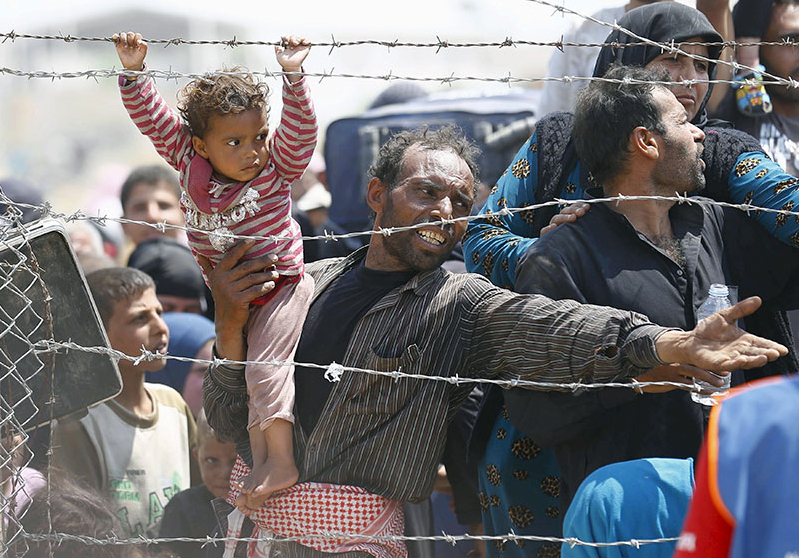
Christians from Iraq and Syria have fled to Kurdish-run refugee camps after the terror group known as ISIS overran many of their communities across the Middle East. Now they are trying to look for hope anywhere they can while languishing in the camps.
According to an exclusive report by Arina Moradi of Rudaw, thousands of Christian refugees were brutally driven from their homes by ISIS and looked for sanctuary in cities and towns across the region of Kurdistan. One of them included 28-year-old Marolin Sabri, a mother of three from the Assyrian Christian community who has expressed frustration with local officials.
"I have to laugh," Sabri said. "So many people have come from the government saying they will help us, but we are only surviving on the help from NGOs and the church."
Moradi reported that Sabri was part of a community of Assyrian Christians who nestled together in a former church in the Iraqi city of Kirkuk; her hometown was in Bartella, which is currently occupied by ISIS. Many displaced Christians shared her sense of frustration, daily worries, and fears for the future of themselves and their families.
"Our kids keep asking, 'When will we go home?' It is like a prison for them," Sabri said.
Moradi also talked to 47-year-old Bernan Petros of Bartella, who fled with his family after ISIS militants took over the Christian community.
"We were almost the last family to leave," Petros said. "We left everything behind, even our money. Without my money, how can I make plans?"
Petros added that everything he owned "is under the control of ISIS." According to Rudaw, he and his family now live in what used to be Qalb Muqaddas (Sacred Heart) Assyrian Church in Kirkuk.
"We don't have work. We just survive on what they give us," Petros said.
Both Petros and Sabri highlighted to Rudaw that they would need jobs and residency permits in order to build a new life in Kurdistan. According to Rudaw, the Kurdistan Regional Government, or KRG, reported that nearly 1.2 million displaced Iraqis arrived in Erbil.
Moradi talked with Anoutha Ishak, a Christian woman who lives in the overcrowded city of Ainkawa. She mostly stayed within the Mar Eillia Church inside the city's Christian neighborhood.
"We became depressed and psychologically unwell," Ishak said. "I was a nurse. I left my job, my belongings, my house, and all our money. Of course after we came here our life changed."
Shakir Yasseen, general director of the KRG's Bureau of Migration and Displacement, insisted to Rudaw that the Kurdish government has treated all displaced groups equally.
"We are dealing with refugee issues-Arabs, Christians, Yazidis, and all other minorities-without any discrimination," Yasseen said. "For those who are living in the Kurdistan region, we are trying to help them stay inside the country."
Moradi reported that about 1.4 million Christians lived in Iraq before 2003. However, the Christian population now is estimated between 260,000 and 350,000 thanks to the conflict with ISIS.
"We are trying to prevent illegal immigration of all Iraqis including Christians," Yasseen said. "We want them [to] stay inside the country, but for those who have been given a visa by European embassies in the region, we cannot do anything about it."
Petros indicated to Moradi that there was "no hope" for him and his fellow Christians in the region.
"We are so tired of this situation, and now we are thinking of leaving--all Christians together--to seek another place in Europe," Petros said. "That is our only dream: to leave this place forever."






